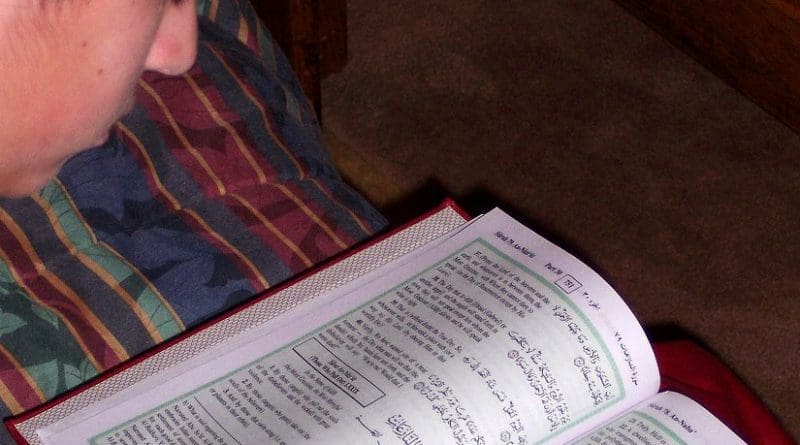Why Is Pakistan Putting Its Faith In Religion? – OpEd
By Saad Hafiz
Across the globe, the religious brand of nationalism is thriving because both religion and nationalism are marketable. Christian, Hindu, Jewish, and Muslim religious nationalists share a history and worldview built on myths of the “chosen” people. It is a unitary, territorial, and religious identity that is based on the superiority of religion.
Religious nationalists encourage belief in racial superiority. They force minorities to accept secondary status, and expect religions to give up their extraordinary diversity of practice.
The goal of religious nationalists is to control the state through stealth and propaganda. A religion-based order threatens secular, liberal, and democratic systems. It poses a grave danger to inclusive, progressive, and struggling democracies. Following an anti-secularist, exclusionary, and fundamentalist agenda in politics can lead to a perilous future.
Religious nationalist groups with power, wealth, and influence define and target vulnerable groups marginalised as “others”. Scaremongering, demonisation, and attacks on minorities have risen worldwide. Mostly racial minorities and immigrants in the US and Europe, Palestinians in Israel, Muslims and Christians in India, religious minorities, and non-Muslims in Pakistan endure the assault.
Control of educational institutions and curriculum play a crucial role in promoting religious nationalism and identity formation. Schools and colleges churn out young believers — the foot soldiers of religious nationalism. They force the inerrancy of religion on young minds. It follows a basic plan: we are a righteous nation; our heroes were believers, and our enemies were non-believers; spiritual principles inspired by the God must drive the nation’s laws; and our power and prosperity can only come from holiness and obedience.
The campaign to introduce religious orthodoxy in public education has made significant inroads. It is affecting secular societies like the US, states of the former Soviet Union, India, and Israel. The aim is to promote sectarian education and introduce holy books into the school curriculum.
A thought-provoking research states that textbooks contain enormous religious content and instill moral superiority; they are used to construct students’ monolithic Sunni Islamic identities, disregarding diverse cultural and religious beliefs…
In Pakistan, Islamisation is proceeding at a frenetic speed. Quranic teaching is compulsory in state-owned schools. A recent study on public education has shown alarming results. It could serve as a valuable lesson for other states and societies that have launched an attack on pluralism and diversity.
A thought-provoking research conducted by M. Habib Qazi, titled Construction of religious identities in Pakistani state schools, and its implications for minorities, analyses role of the national curriculum, textbooks, teachers, students, and schools, as a structure, in formulating an Islamic identity and its broader implications.
The study states that textbooks contain enormous religious content and instill moral superiority; they are used to construct students’ monolithic Sunni Islamic identities, disregarding diverse cultural and religious beliefs; textbooks exclude the representation of religious minorities from discourses; many survey respondents considered Hindus inherently evil and the US morally corrupt; some respondents implied Shias were not true Muslims; girls considered the Christian church, western dresses, music, and dance as evils.
Interestingly, in contrast to Pakistan’s dogmatic approach, its ideological ally Saudi Arabia is moving in the opposite direction. The Saudi authorities are changing school curricula to highlight non-Islamic components of Saudi national identity and history over Islamic ones. It is part of the effort to contain the spread of political Islam. Indonesia, the largest Muslim-majority nation, has revamped religious education to promote harmony, mutual respect, and peaceful coexistence among religions.
Nation-states must find better ways to integrate religious and pluralistic thought in the population. Infusing fundamentalist religious doctrine in school curriculum and textbooks risks the development of a parochial and confrontational worldview. Future generations need unity to solve problems based on a democratic approach not possible without collective affinity.
The writer is an analyst and commentator. He can be reached at [email protected].


There is no concept of “chosen people” in Hinduism. Your article conflates Abrahamic religions with Hinduism. The philosophies are worlds apart. Abrahamic tradition is binary; Hinduism is cyclical. If you want to write an article on the dangers of religious intolerance, go for it. I agree with you. But, please do not conflate.
Chosen people or not, Hindu supremacism and Holy nationalisms divide the human community.